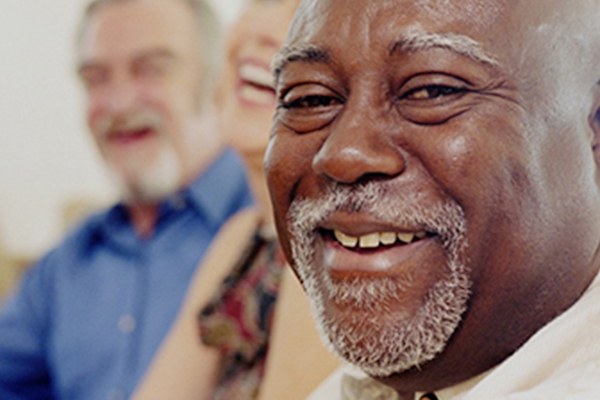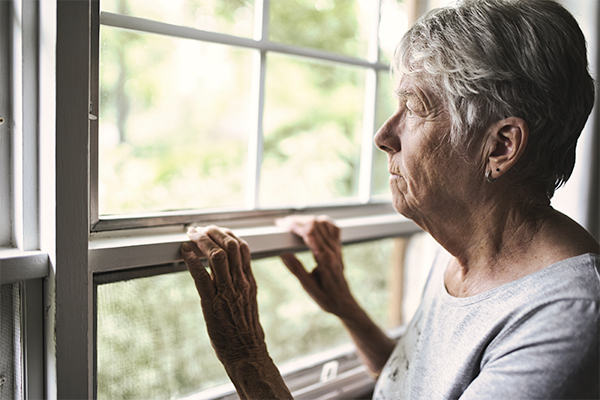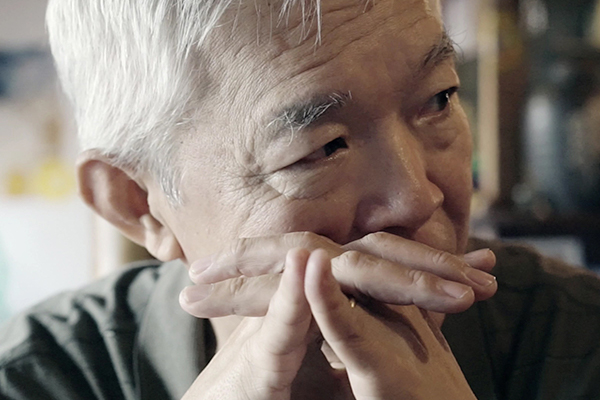Ageism
Ageism is all around us and can affect the way we see ourselves and others in our community. A negative frame of aging may also limit what we think we’re capable of, what we deserve access to or what we should or shouldn’t do. Research conducted by Becca Levy, PhD at Yale School of Public Health has shown that, on average, people with positive outlooks on aging live 7.5 years longer than those who have more negative perceptions on aging AND older adults with positive age beliefs with dementia risk factors were nearly 50% less likely to develop the disease than their peers who held negative beliefs. Reframing our language about aging in a more positive light not only helps to combat ageism but can also result in longer, happier, and healthier lives for older adults.

Anxiety and Depression
Depression and anxiety can affect older adults, but that doesn’t mean all older adults experience depression or anxiety. In fact, clinical depression is not a normal part of aging. In fact, studies show that most older adults feel satisfied with their lives, despite having more illnesses or physical problems than younger people. Depression in older adults may be difficult to recognize because older people may have different symptoms than younger people See the resources below for what you can do to build resilience against anxiety and depression symptoms.

Evidence-based Treatment Programs for Mental Illness
Adults with serious mental illness over age 50 have high rates of medical comorbid conditions; significantly reduced life expectancy; and are more likely to be admitted to nursing homes and other long-term care facilities. Access to quality and evidence-based care is paramount to support this community. Moreover, people who are living with SMI and complex medical conditions benefit from integrated care models of evidence-based treatment programs to ensure they are getting the support they need to manage both their physical and mental health.

Substance Use Disorders
Substance use can be difficult to talk about in healthcare settings. Many patients prefer not to discuss their use of substances with their providers, and similarly, providers are often uncomfortable discussing substance use with their patients due to not wanting to harm the relationship if they express concern. Given age-related changes in metabolism, any amount of alcohol or drugs may affect older adults adversely, so it is an important discussion for the patient and their providers to have. We have included some education about highest risk medications for older adults, and resources on how to start having these conversations, and access support around substance use and substance use disorders below.

Age-Friendly Health Systems
Experts in geriatrics examined the research around older adult health and identified common themes that made interventions successful. Based on this research, they created the 4Ms: What Matters (to the patient), Mobility, Medication, and Mentation, named the Age-Friendly Health System framework. The 4Ms have been associated with decreased hospitalization and associated costs; increased patient satisfaction; decreased falls; decreased adverse drug events; and increased function, quality of life, and lifespan. Combining the evidence-based, patient-centered framework of the 4Ms with evidence-based interventions may vastly improve the health and wellbeing of older adults. Learn more below!

Military Veteran Resources
Many older Americans served in the military and/or take care of an older adult who served in the military. The Department of Veterans Affairs has many programs to support older Veterans and their families and caregivers. Veterans may access online resources and integrated mental health services across health care programs. VA also provides a range of specialized geriatric services for Veterans and families to help them cope with complex medical, cognitive, and mental health conditions in later life.

Suicide
Older adults are at the highest risk for death by suicide. The longer we live, the more transitions and losses we experience, which can greatly impact our social connectedness, resilience, and overall wellbeing. Whether one is experiencing the loss of a spouse or close friend; a loss of independence or retiring from a career, these losses can add up and may lead to isolation and loneliness. Social isolation, in simple terms, means there are fewer people someone feels they have to talk to, or that they can count on in good or bad times. This reduces the chances of someone feeling close enough to a person to share that they are experiencing thoughts of suicide, thereby decreasing the opportunity for accessing clinical interventions or support. Older adults may be more intentional around ending their lives, and often use more lethal means to do so, like firearms. To increase awareness and knowledge on this critical topic, the E4 Center has compiled some excellent fact sheets and resources below.

Peer Support Resources
Peer Support Specialists play a vital role in caring for their peers. Our society frames the older adult experience in a negative way, and it is not uncommon for people to internalize ageism and have the ageism they feel be validated by others. Older Adult Peer Support Specialists are trained professionals who have lived experience in mental health or substance use and can help support and educate older adults on how to access and navigate care. As peers and professionals working with older adults, we must recognize that words and language matter. We can make a big impact by changing the way we talk about older adults and common health concerns.

Social Isolation
Loneliness is generally felt when people endure loss, feel physically or emotionally distant from those they care about, or don’t feel they have enough people they can count on. Extended periods of isolation can have long-term effects on mental and physical health. The E4 Center has gathered a host of materials and tools aimed at helping older adults navigate social isolation.

Other Resources
Additional community resources.




